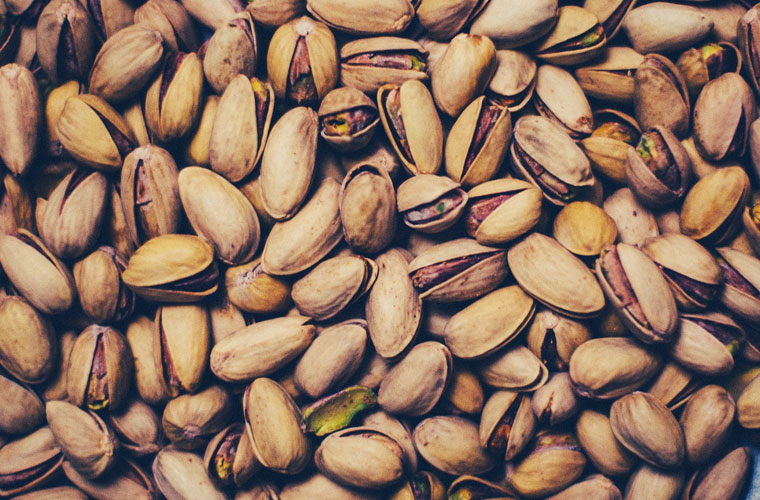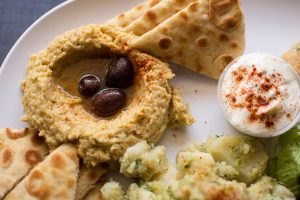
Photo credit: Pixabay
Fat has always been associated with obesity and various diseases, like type 2 diabetes and heart disease, but not all fats are bad for your body. In fact, the human body can’t function properly without fat. These are some of the best sources of healthy fat that will keep your heart healthy.
1. Avocado
Avocado is a fruit that originates from Mexico, and it stands out not only by its appearance but also by its structure and composition. Unlike any other fruit, avocado is extremely high in fat. But it’s important to mention that all the fat it contains is healthy, belonging to the group of monounsaturated fats. Those fats are connected with LDL cholesterol.
Furthermore, avocados are rich in fiber, lutein, vitamin E, and protein. However, keep in mind that the abundance of fat means that it has quite a lot of calories. That’s why you should eat a maximum of one half of avocado per day, or one quarter per serving. It is great as a replacement for butter and it’s easy to grow either indoors or outdoors.
2. Fatty fish

Photo credit: Pixabay
Some of the fish that are considered to be an excellent source of protein and best sources of healthy fat are salmon, tuna, mackerel, herring, trout, and sardines. They are full of omega-3 fatty acids, and they are the best food when it comes to brain and heart health. If you want to preserve your well-being, you should eat fatty fish at least two times a week.
Serving should be a medium portion, approximately 3 ounces. Also, you can consume fish oil, which is also a great source of omega 3 acids, but it lacks vitamin A, which is not the case with fresh, grilled or poached fish. If eating fish gets boring, be creative, and eat it in salad, burger, or throw it on a charcoal grill.
3. Dark chocolate
This may come as a surprise to some, but for all chocolate lovers, this is the great news. It is one healthy thing that you can’t complain about, and the reason why dark chocolate, unlike other types of chocolate, is considered to be healthy is that it contains the highest amount of unprocessed cocoa. You can check the percentage of cocoa on the back of the wrapping.
The higher the percentage, the more chocolate is healthier. It also contains vitamins A, B, and E, and even fiber. It is known that dark chocolate lowers blood pressure, so next time you feel anxious or nervous, feel free to eat a few squares of it. Unfortunately, the calories in chocolate are still there, so you should be moderate.
4. Cheese
Even though it is a common component of many unhealthy foods, cheese, as many other products, has healthier and less healthy varieties. If we begin with tofu, which is plant-based cheese, we can say that is very healthy and that it contains healthy fats. However, the quantity of fats in tofu cheese is incomparably smaller than in other cow milk-based cheeses.
When it comes to cheese made from cow milk the problem is that it contains saturated fats besides healthy fats. Saturated fats are considered to be unhealthy, and that is the reason people are indecisive when it comes to the benefits of cheese. However, the quantity of good fat, proteins, calcium, vitamin D, and other nutrients win over making the cheese good for us. So, you can put some Parmesan on your salad or in your sandwich without worrying about health risks.
5. Eggs
Benefits of eggs, like cheese, have been up for discussion for a very long time, but this time, positive and healthy prevailed. The main concern was that yolk contains cholesterol, but different studies have shown that fat from eggs is not harmful and that it doesn’t increase cholesterol levels. Now that we’ve resolved that, let’s talk about why eggs are good.
They are an excellent choice for breakfast because they are very nutritious and fulfilling. They are packed with omega 3 fatty acids, protein, vitamins and minerals. There are many ways to prepare them, but the best way is to boil them since you don’t increase the calorie count that way. So start your day with eggs, you won’t regret it.
6. Olive oil
Firstly let’s emphasize the benefits of olives themselves. Whether black or green, olives are full of monounsaturated fats and nutrients. Olives contain a high amount of sodium, so they should be dosed, but on the other hand that’s why they are ideal as an addition to salads and pizza.
When we consider all of this, it is no wonder that olive oil is considered to be the best replacement for vegetable oil. Just like olives, olive oil should be dosed. One tablespoon is enough, whether you want to season a salad or prepare any meal. Most people use olive oil for cooking, but keep in mind that it might lose some of its benefits if you cook at high temperatures.
7. Coconut oil
Coconut oil was predominantly used for hair and skin treatments and products. Only recently it became a part of the everyday diet for many people. Coconut, as well as its oil, is a source of saturated fat, and those fats don’t have a good reputation. But on the other side, most of the saturated fat is a beneficial lauric acid.
The power of lauric acid is in the fight against bacteria and inflammation. Coconut oil can be used in cooking, or you can simply add it to your favorite hot beverage. It is in the solid-state on room temperature, so it is best if you heat it before use. Coconut oil has numerous benefits and it is one of the best sources of healthy fat.
8. Nuts

Photo credit: Pexels
Nuts are known as the best possible snack and a great way to eliminate sweets and baked goods from your diet. With only a handful you will consume a lot of fats, vitamins, and minerals. It is best to mix different types of nuts like walnuts, almonds, pistachios, etc. The reason behind this is that each variety brings its own set of benefits.
Walnuts are rich in omega-3 fatty acids, almonds have vitamin E and pistachios are full of lutein. There is also nut butter, which can also be very good for you. The only thing you have to pay attention to is that the nut butter you are buying is not reduced-fat because those can be full of sugar. Nut butter is also full of protein, that’s why it is very popular with athletes and those who exercise regularly.
9. Seeds
You wouldn’t believe how beneficial seeds are. They are close to the top on our list of best sources of healthy fat. From pumpkin and sunflower to flax and chia seeds, you can’t choose wrong. They are full of omega 3 fatty acids, fiber, and protein, and they are also beneficial when it comes to weight loss and regulating blood pressure. There are numerous ways to incorporate them into your diet.
Seeds fit well in almost any salad; you can put them in bread or mix them in your morning smoothie. As with nuts you can find seed butter, which is extremely healthy and tasty. Whichever seeds you like, make sure that you buy unsalted ones, they are equally tasty but much healthier. They have numerous health benefits and you should consume them regularly.
10. Beef
Beef is often considered as unhealthy food, but if you choose wisely, you can take advantage of all the benefits this meat provides. To find the best meat, look for grass-fed lean beef. That beef has not the only proper amount of fat but is packed with protein, fiber, and zinc.
Beef is excellent for muscle growth, because of the amount of protein it contains; a portion of beef can have up to 25 grams of pure protein. The best way to prepare it is to grill it, so it remains soft and retains its juices. As for calories, lean beef has fewer calories. Don’t add too much salt to it, because it already contains sodium; it is best to season with herbs and spices.
11. Yogurt
Yogurt is healthy and refreshing, light and low in calories, and it is a great way to start your day. In fact, it is excellent for you, whether you eat it early in the morning, or as an addition to a meal. However, don’t go for fruit yogurts because those fruit-flavored yogurts tend to have too much sugar added.
It is best to choose full-fat yogurt like Greek yogurt, because it has more protein, calcium, probiotics and less sugar, and it is another one of the best sources of healthy fat. Next to monounsaturated and saturated fats, yogurt contains trans fats, but when you compare their quantities, trans fats don’t have any negative effects on your cholesterol. If you have problems with digestive health, yogurt will surely help you.
Before you start implementing these foods into your diet, keep in mind that you can’t go overboard with any of these foods. You have to follow some dietary guidelines and eat a variety of foods from different food groups as the American Heart Association recommends. Seek medical advice from your doctor in case you have certain health issues.



